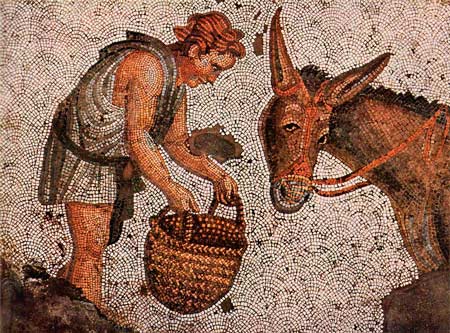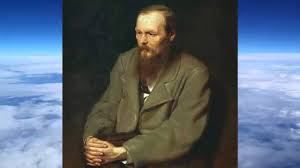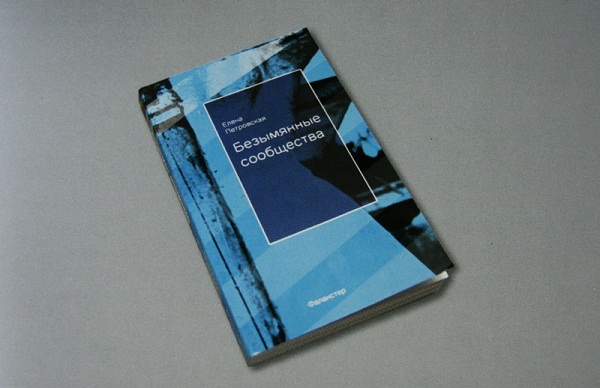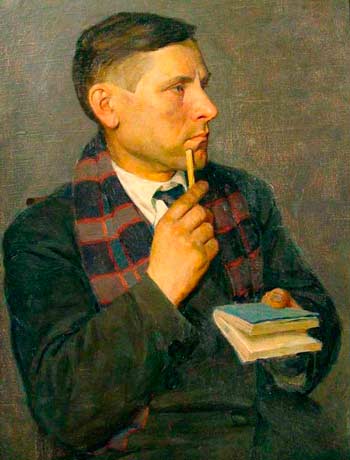Grossman “Life and Fate”
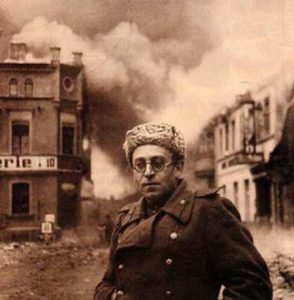 How strikingly disappeared all the Soviet spells and formulas, enumerated above! [cm. Grossman’s article “For the Right Cause” – analysis by A. Solzhenitsyn] – and no one will say that this is from the author’s insight of 50 years? And what Grossman really didn’t know and didn’t feel until 1953–1956, he managed to catch up in the last years of work on Volume 2, and now, with passion, it’s all missed into the fabric of the novel.
How strikingly disappeared all the Soviet spells and formulas, enumerated above! [cm. Grossman’s article “For the Right Cause” – analysis by A. Solzhenitsyn] – and no one will say that this is from the author’s insight of 50 years? And what Grossman really didn’t know and didn’t feel until 1953–1956, he managed to catch up in the last years of work on Volume 2, and now, with passion, it’s all missed into the fabric of the novel.
Now we learn that not only in Hitler Germany, but also here: the mutual suspicion of people towards each other; It is a matter of suspicion if people talk over a glass of tea. Yes, it turns out: Soviet people live in terrifying housing cramps (the driver opens this to a prosperous Strum), and in the police registration office there is oppression and tyranny. And what disrespect to shrines: “in a greasy combat sheet” a fighter can easily wrap a piece of sausage. But the conscientious director of Stalgres stood on the deathbed during the whole siege of Stalingrad, left the Volga on the day of our successful breakthrough – and all his merits under the tail, and broke his career. (And before that, Pryakhin’s crystal-positive secretary of the regional committee now recoils from the victim.) It turns out that even Soviet generals may not be at all brilliant with their achievements, even in Stalingrad (Part III, Ch. 7), Stalin! Yes, even the corps commander dares to talk with his commissioner about landings in 1937! (I – 51). In general, now the author is daring to raise his eyes to the untouchable Nomenclature – and it’s obvious that he was thinking a lot about it and was very boiling on his soul. With great irony shows the gang of one of the Ukrainian regional committees of the party, evacuated to Ufa (I – 52, however, as it reproaches them for their low rural background and caring love for their own children). But what, it turns out, are the wives of responsible workers: in the comfort of the Volga steamer, who are being evacuated by the Volga steamer, they indignantly protest against landing on the decks of that steamer also a detachment of military men, going to battle. And the young officers at the quarters hear the frank memories of the inhabitants “of complete collectivization.” And in the village: “no matter how hard you work, they will take the bread anyway”. And the evacuees, with hunger, steal a collective farm. Yes, that’s up to the Strum itself was the “Questionnaire Questionnaire” – and how rightly he ponders over it about its stickiness and clawiness. And here the hospital commissar is “tormenting” that he “didn’t fight enough with disbelief in victory among the wounded, with enemy sorties among the backward wounded, hostile to the collective farm system” – oh, where was it before? oh, how much truth is still behind it! And the hospital burials themselves are cruelly indifferent. But if the workplace digs the coffins, then from whom is it recruited? – not mentioned.
Grossman himself – does he remember what he was in the 1st volume? Now? – now he undertakes to reproach Tvardovsky: “how can one explain that a poet, a peasant from birth, writes with a sincere feeling a poem praising the bloody time of suffering for the peasantry”?
And actually the Russian theme, compared with the 1st volume – in the 2nd is still pushed. At the end of the book, it was sympathetically noted that “seasonal girls, workers in heavy workshops,” both in dust and in mud, “retain a strong, stubborn beauty with which a hard life cannot do anything.” Also referred to the finale is the return from the front of Major Berezkin – well, the Russian unrolled landscape. Here, perhaps, that’s all; the rest is a different sign. Envy Strum at the institute, hugging another of the same: “And yet the most important thing is that we are Russian people.” The only very true remark about the humiliation of Russians in their own country, that “in the name of friendship of nations we always sacrifice Russian people”, Grossman inserts Getmanov, a cunning and boorish party bonus, from that new (post-Comintern) generation of party nominees who “loved their Russian they spoke wrong in Russian and in Russian, ”their strength was“ in cunning. ” (As if the international communist generation of tricks was less, oh-oh!)
From some (late) moment Grossman – but he is not alone! – brought to himself the moral identity of German national socialism and Soviet communism. And honestly seeks to give a newfound conclusion as one of the highest in his book. But I have to disguise myself (however, extreme courage for Soviet publicity anyway): to state this identity in a fictional night talk by obsturthurmbannführer Liss with a prisoner Comintern Mostovsky: “We look in the mirror. Do you not recognize yourself, your will in us? ”Here, you“ will win, remain without you, alone against another’s world ”,“ our victory is your victory ”. And makes Mostovskogo be horrified: is there really any truth in this “complete snake venom” speech? But no, of course (for the safety of the author himself?): “The obsession lasted a few seconds,” “the thought turned into dust.”
